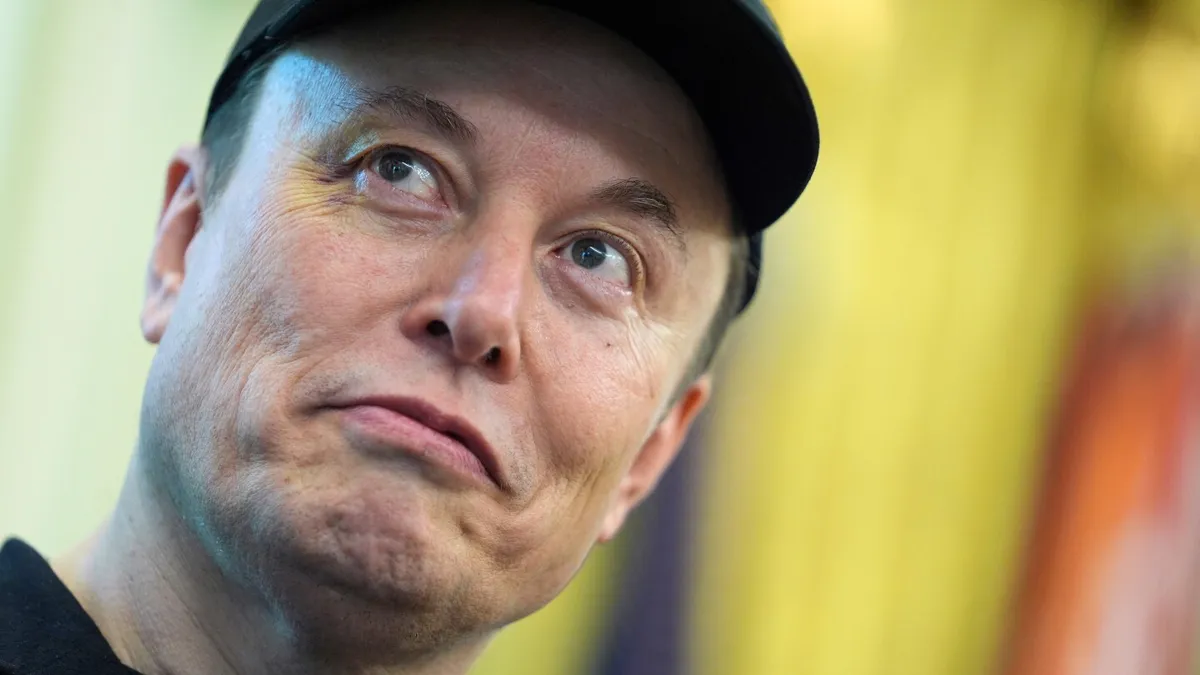
The world’s richest man, Elon Musk, has been presented with a monumental opportunity to make history by potentially becoming the first trillionaire. In a significant shareholder vote held on Thursday, Musk secured a plan that could grant him stock worth an astonishing $1 trillion, contingent upon meeting specific performance targets over the next decade. This pivotal decision followed extensive discussions regarding his management style at Tesla and the broader implications of such unprecedented compensation. The debate sparked reactions from a spectrum of stakeholders, including small investors, large pension funds, and even prominent figures like the Pope.
During the annual shareholder meeting in Austin, Texas, over 75% of voters endorsed the compensation plan. Following the announcement of the vote results, Musk expressed his gratitude, stating, “Fantastic group of shareholders,” and encouraged them to “Hang on to your Tesla stock.” This overwhelming approval reflects investors' continued confidence in Musk, even as Tesla faces challenges such as declining sales, shrinking market share, and reduced profits—issues that are partly attributed to Musk's own controversial public persona.
Despite the positive vote, Tesla's position remains precarious. Recent reports from Europe highlighted a significant downturn in car sales, with a staggering 50% drop in Germany alone. Many Tesla investors, however, still view Musk as a visionary leader capable of achieving remarkable business successes. His past accomplishments, including rescuing Tesla from the brink of bankruptcy six years ago and transforming it into one of the most valuable companies globally, bolster this belief.
The approved plan paves the way for Musk to amass wealth that could surpass historical figures like John D. Rockefeller. To achieve this, Musk must meet several ambitious financial and operational goals. These include raising Tesla's market valuation nearly sixfold and delivering 20 million Tesla electric vehicles over the next decade—more than double the total number sold since the company's inception. Additionally, Musk aims to deploy 1 million of his anticipated human-like robots, which he refers to as a “robot army.”
While Musk's victory is a clear endorsement from shareholders, it came despite significant opposition from notable funds, including CalPERS, the largest public pension in the U.S., and Norway’s sovereign wealth fund. Corporate governance firms like Institutional Shareholder Services and Glass Lewis criticized the compensation package, prompting Musk to label them “corporate terrorists” during a recent investor meeting. Critics argue that the board of directors has become overly accommodating to Musk, raising concerns about his recent behavior and the excessive nature of the proposed compensation.
Supporters of Musk argue that the compensation structure is essential to motivate him to focus on transforming Tesla into a leading AI powerhouse. This includes utilizing software to manage hundreds of thousands of self-driving Tesla vehicles and deploying robots in various sectors. Financial analyst Dan Ives of Wedbush Securities stated, “This AI chapter needs one person to lead it, and that’s Musk.” He characterized the vote as a substantial victory for shareholders, emphasizing the potential for innovation under Musk's leadership.
The vote's outcome has implications beyond Musk's personal wealth, as investors weighed the risks associated with Musk's leadership. Despite threatening to withdraw from the company, which could have negatively impacted stock prices, Tesla shares saw an 80% increase over the past year. Following the vote, the stock experienced a slight uptick during after-hours trading but ultimately stabilized around $445.44.
Musk has indicated that the recent vote was not solely about financial gain but about increasing his stake in Tesla to nearly 30%, thereby enhancing his control over the company. He expressed concerns regarding the management of the upcoming “robot army,” suggesting a lack of trust in others to handle potential risks to humanity. Additional proposals voted on during the meeting also favored Musk, including a plan to allow Tesla to invest in his other venture, xAI, while rejecting a proposal to simplify the process for shareholders to file lawsuits against the company.
In summary, Elon Musk's recent shareholder victory sets the stage for a potentially transformative decade for both him and Tesla. As he strives to achieve unprecedented financial milestones, the stakes for investors and the company remain incredibly high.